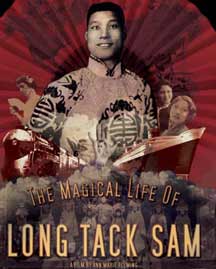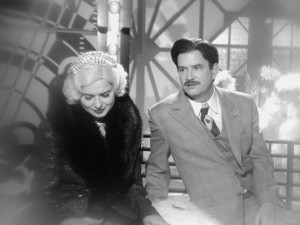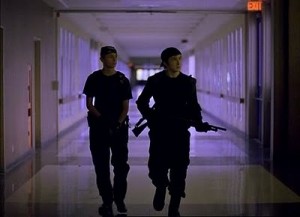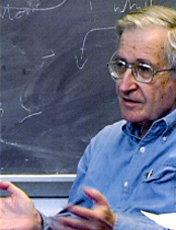Chicago International Film Festival coverage, from the Chicago Reader (October 10, 2003). — J.R.

Among the films screened at the Toronto film festival last month that will turn up here eventually was Jim Jarmusch’s Coffee & Cigarettes, which taught me something about the complex ethics of celebrity — including the resentment fame can foster in noncelebrities and the defensiveness this resentment can provoke in turn. It also showed me how a cycle of comic black-and-white shorts can become a thematically and formally coherent feature. Other festival films were equally edifying, in their own ways. Ann Marie Fleming’s The Magical Life of Long Tack Sam — a playful, speculative documentary about Fleming’s once-famous great-grandfather, a Chinese stage magician who toured around the world — tells the story of his life by telling the history of the 20th century.


In The Saddest Music in the World Guy Maddin applies his hallucinatory, pretalkie visual style to a characteristically deranged script, which has hilarious things to say about how the colonialist chutzpah of big business in the U.S. looks to a cowering Canadian artist. Errol Morris’s documentary about Robert McNamara, The Fog of War, suggests, among other things, that in terms of power relations Morris is ultimately as subservient to McNamara as McNamara once was to Lyndon Johnson. Read more
From the Chicago Reader (October 3, 2003). — J.R.

A friend of a friend recently visited an uncle who’d just come back from fighting in Iraq. He conceded that the invasion hadn’t reduced the threat of terrorism or uncovered any weapons of mass destruction or exposed any links between September 11 and Saddam Hussein. “Just the same,” he said, “September 11 happened almost two years ago — and somebody’s got to pay.”
I was reminded of his words a couple days later at the Toronto film festival, when I saw Gus Van Sant’s Elephant — a fiction film about the 1999 killings at Columbine High School. No one has been able to adequately explain that massacre, and Van Sant doesn’t even try. Yet one of the teenagers’ motives may well have been “somebody’s got to pay.”
Elephant is Van Sant’s first decent film in years, but it made Variety‘s Todd McCarthy so indignant when it premiered at Cannes this past spring that his anger may have been the biggest news at that festival. This is less peculiar than it sounds, since the Cannes festival is held mainly for the press — unlike the Chicago festival, which is held for the public, or the Toronto festival, which is held for the press, the industry, and the public — and that creates an overheated critical climate where all the competing films are commonly declared either wonderful or terrible. Read more
In my original review of this documentary, I cited and recommended some writing by Eliot Weinberger that three of my editors regarded as irresponsible and unreliable and therefore something that shouldn’t be mentioned, along with some of my own pronouncements. Readers who would like to judge this matter for themselves can read my unedited draft, which I’ve added below the published version. The edited version appeared in the February 7, 2003 issue of the Chicago Reader. — J.R.

Power and Terror: Noam Chomsky in Our Times
*** (A must-see)
Directed by John Junkerman.
As a work of cinema, John Junkerman’s documentary about Noam Chomsky doesn’t set the world on fire. The film is a prosaic compilation of interview footage of the linguist and political analyst in his office at MIT intercut with footage of him speaking in Palo Alto, Berkeley, and the Bronx last spring. He’s also shown chatting with students about U.S. foreign policy, the “war on terrorism,” and representations of both in the American media. Unlike Mark Achbar and Peter Wintonick’s Manufacturing Consent: Noam Chomsky and the Media (1992), a Canadian film that’s well over twice as long, Power and Terror: Noam Chomsky in Our Times doesn’t try to offer a comprehensive portrait of its subject or a wide-ranging survey of his thought. Read more





